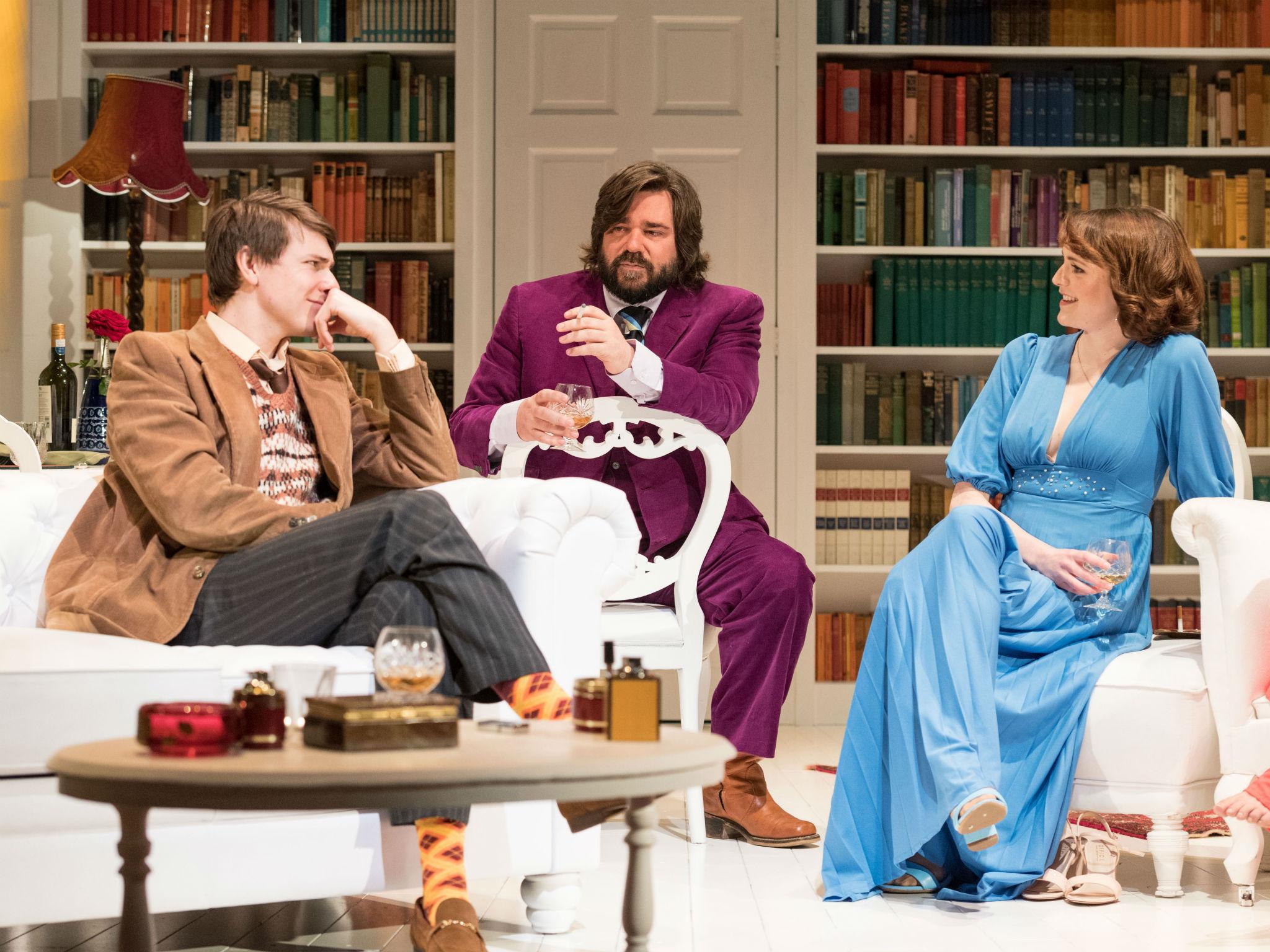The Philanthropist, Trafalgar Studio 1, London, review: A strange play to unearth now
Matt Berry and Lily Cole star in Simon Callow's revival of Christopher Hampton's 1969 play which is an inversion of Molière’s ‘Misanthrope’

Your support helps us to tell the story
From reproductive rights to climate change to Big Tech, The Independent is on the ground when the story is developing. Whether it's investigating the financials of Elon Musk's pro-Trump PAC or producing our latest documentary, 'The A Word', which shines a light on the American women fighting for reproductive rights, we know how important it is to parse out the facts from the messaging.
At such a critical moment in US history, we need reporters on the ground. Your donation allows us to keep sending journalists to speak to both sides of the story.
The Independent is trusted by Americans across the entire political spectrum. And unlike many other quality news outlets, we choose not to lock Americans out of our reporting and analysis with paywalls. We believe quality journalism should be available to everyone, paid for by those who can afford it.
Your support makes all the difference.This is a rum evening, all right. At a particularly charged moment when even family pets seem to be taking sides politically, Simon Callow has elected to revive this 1971 tragicomedy by Christopher Hampton. An inversion of Molière's Misanthrope, it relocates the hypocritical hothouse of the Sun King's court amidst the bitchy, inward-looking gossips and backbiters of contemporary academe.
As the author underlines in the programme, the piece – commissioned by the Royal Court – was a self-proclaimed “bourgeois comedy” in teasing conscious subversion of the theatre's “angry young man” ethos. The court was far from sure how it felt about this backhanded compliment.
I wish I could say that the apolitical chatterers throw the tribe of the committed into fresh and arresting relief in The Philanthropist. But instead the outside world is reduced to a fitful, unfunny running gag in which we hear of seismic changes – the assassination of the Prime Minister and most of the Cabinet, say, by a lunatic who said he did it to save Britain from creeping socialism – just so that the dons and hangers-on can advertise their frivolous self-involvement and launch barbs,such as the notion that the Queen has sent for the Minister for Sport to have her racket restrung.
Callow certainly brings a new kind energy to the proceedings by assembling a cast more familiar to the public from television. Smouldering with conceit and smarmy in raspberry corduroy, the excellent Matt Berry can't get enough of himself – with little flecks uncertainty – as Braham, the literary big beast who had to abandon the Left for tax purposes. His new novel is about a care worker who sees the light and becomes a merchant banker. Charlotte Ritchie as Celia radiantly suggests a woman who tries to guard herself from melancholy and emotional disappointment by recourse to high-spirited malice. It's a pity that the play only starts to convince you that she can ever have been engaged to Simon Bird's Philip – the philanthropist of the title – once the relationship starts to come unravelled.
Molière's misanthrope, Alceste, takes vituperative hatred to such extremes as call into doubt his judgement. Bird is very good at the nerdy, wordy aspects, anagram-obsessed of Philip – a philologist, a profession sneered at by Braham as combining the boredom of science with the uselessness of the arts – and he's very funny when he's propositioned and goes to bed with the girl solely because he does not know the ropes of getting out of such situations delicately.
But I never felt Bird's Philip was in touch with despair (as I did, say, when Simon Russell Beale played the part) – that this don's life was a full one and an empty one. It makes the trickery with suicide and the end feel unearned. A strange play to unearth now.
Join our commenting forum
Join thought-provoking conversations, follow other Independent readers and see their replies
Comments